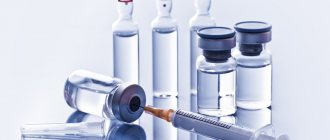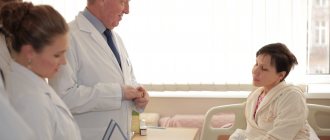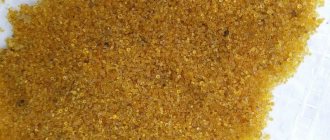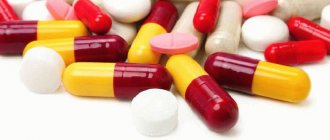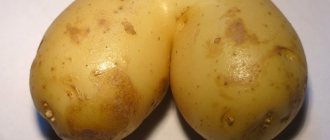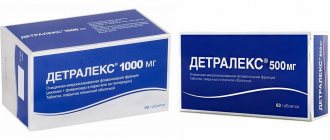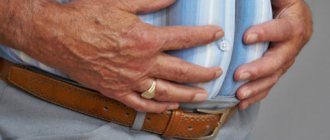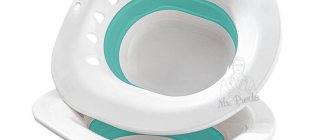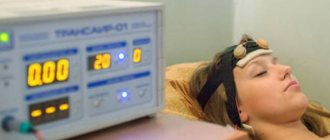Not only scientific medical literature testifies to hemorrhoids, the disease is so widespread that it always pops up in common speech. This fact allows us to think about how much trouble this disease causes people. Regardless of this, many do not seek timely help from a proctologist, but instead take medications to relieve unpleasant symptoms: constipation, pain, bleeding, burning. What kind of painkillers are there for hemorrhoids?
How are hemorrhoids treated?
Hemorrhoids are a disease associated with thrombosis, a pathological expansion of hemorrhoidal veins.
Therapy for hemorrhoids includes surgical and conservative treatment. Patients do not seek surgical treatment and prefer to treat hemorrhoids using traditional methods, tablets, as well as ointments and suppositories.
Which method is the most effective? Conservative treatment is relevant only in the early stages of the disease. When it is not effective, proctologists perform surgical treatment. Stages of the disease:
- vascular nodes do not fall out of the intestine, but microbleeding occurs; the patient feels discomfort, during examination the vascular pattern is slightly changed, and minor changes are observed in the longitudinal muscle.
- characterized by copious mucous discharge, bleeding, frequent bloody discharge from the anal ring during bowel movements, itchy sensations; the nodes can be adjusted independently; during the examination, muscle tissue degeneration is detected, the elastic fibers are not changed.
- the disease worsens, the patient experiences severe discomfort and frequent itching sensations; the nodes fall out on their own, and it is not always possible to set them back. The muscle tissue is severely deformed and its elastic properties are lost. The processes of dystrophy continue to progress.
- frequent pain, itching, constant feeling of pain, bleeding not only after defecation, but also independent of it; inability to independently reduce prolapsed hemorrhoids, spontaneous defecation due to sphincter incontinence. The examination reveals complete degeneration of the canal muscles.
Why does pain occur with hemorrhoids?
Venous plexuses, which increase in hemorrhoids, are localized in places where there is an accumulation of pain receptors. As the inflammatory process develops, they become involved in it and begin to send impulses to the brain, which cause extremely unpleasant sensations to form, which intensify during bowel movements and immediately after it, since the exiting feces create additional irritation.
The nature of the pain can be varied: about a third of patients describe it as sharp, half as cutting or bursting. The perception of sensations is influenced by several factors, including the degree of pathological changes and the individual characteristics of the patient. The nature of the pain varies depending on the stage of the disease:
- At first, pain as such occurs during bowel movements, especially if there is constipation. The discomfort lasts a few minutes and goes away on its own, without the use of medications.
- In the second stage, pain during bowel movements becomes stronger. When visiting the toilet it becomes burning or cutting. The unpleasant symptoms subside after a few tens of minutes. In some cases, noticeable discomfort in the lower back is added to pain in the rectum. In some cases, patients are forced to use topical medications - suppositories with anesthetics to reduce discomfort.
- At the third stage of the disease, pain begins to appear both after defecation and before it. In case of loss, as well as in the presence of external nodes, it appears when sitting for a long time on a hard surface. The pain is characterized as acute tearing, bursting or pulsating, depending on the situation in which it arose.
- At the fourth stage of hemorrhoids, pain accompanies the patient constantly. It can take various forms: aching or bursting - at rest, cutting, tearing or burning - at the time of defecation or after it. The intensity of pain at this stage is very high - the patient cannot walk or sit normally. It is extremely rare to weaken it without strong anesthetics.
Since the pain of hemorrhoids is almost impossible to completely relieve, some patients may develop a fear of going to the toilet. Such situations are fraught with aggravation of symptoms, since delay in bowel movement inevitably leads to constipation, and they lead to even greater trauma to the hemorrhoids.
What are the consequences of hemorrhoids if they are not treated in time?
When hemorrhoids worsen, they can cause bleeding.
If the disease starts, all the symptoms that are present during the acute stage of the disease may constantly bother you; in addition, the formation of:
- Bleeding
- Intestinal prolapse
- Development of paraproctitis
- Anal fissure
- Stool disorders
- Thrombosis of hemorrhoids
- If the tissue lesion is large, it may degenerate into necrosis (death)
The formation of thrombosis of hemorrhoids is the first sign of a complication of the disease; the patient requires immediate assistance. When visiting a proctologist in the first days after the occurrence of this complication, the doctor observes a blue discoloration of the tissues. The patient can determine the onset of these complications due to constant pain in the anal ring.
If the affected area is too large, necrosis may develop on it, which leads to tissue rejection and bleeding. When these symptoms appear, when prescribing treatment, it is important to exclude the appearance of neoplasms in the intestines. Before choosing a treatment method, it is necessary to clarify the diagnosis, the patient’s condition and the stage of the disease.
Treatment methods
Hemorrhoidal suppositories are used to treat hemorrhoids.
Conservative treatment is used in cases where the situation is not advanced and the patient does not experience constant pain. This therapy includes:
- Using external medications for hemorrhoids
- Taking tablets that affect blood circulation and relieve inflammation
- Taking medications to stimulate proper bowel function
- Traditional methods of treatment
- Physiotherapy and massage
Suppositories and ointments have a local effect, while tablets treat the problem from the inside. Modern drugs for hemorrhoids of general action are used to relieve pain, relieve inflammation and strengthen the walls of blood vessels. It is effective when treatment is complex, prescribed taking into account other diseases and takes into account the individual characteristics of the patient.
Massage
Massage can help reduce the pain of hemorrhoids. It improves intestinal motility and makes defecation easier.
Advantages of tablets over other means of treating hemorrhoids
Proctosan is an excellent remedy for hemorrhoids.
Based on statistical data from recent years, we can conclude:
- Many drugs offered today have a minimum of side effects, as they are created from environmentally friendly medicinal herbs. Most medications for the treatment of hemorrhoids contain herbal ingredients.
- Almost all drugs of this type are safe, and this fact is very valuable when choosing remedies for hemorrhoids for pregnant and lactating women.
- The process of treating a disease with tablets is much faster and less unpleasant for the patient.
- Taking tablets does not require special preparation and choice of location, which is necessary when taking their analogues in the form of suppositories or cream.
- Drugs in tablets relieve all symptoms of the disease and treat it, for example, solve the problem of constipation and relieve inflammation.
Venotonics are often used as antihemorrhoids. In addition to strengthening the walls of blood vessels, they stimulate good blood flow, the difficulty of which arises as a result of the formation of hemorrhoids.
How to relieve pain with folk remedies?
At home, the easiest way to get rid of hemorrhoids is with compresses, lotions or sitz baths.
Compresses
To relieve swelling, inflammation, and pain, use ice packs (ice packs on the painful area for 10 minutes every hour). Grate fresh aloe leaves, squeeze out the juice, moisten with a sterile cloth and apply to the inflamed nodes. Grate raw potatoes, wrap the pulp in gauze and place on the sore spot for 10 minutes.
Lotions
Lotions can relieve pain using herbal infusions: chamomile, calendula, nettle, plantain, brachypodium. The herbs reduce inflammation, improve blood circulation around the anus and relieve anal spasms. This helps improve the patient's condition.
Baths
For minor pain, cool sitz baths with the addition of herbal infusions: centanum leaves, aloe vera, nettle, oak bark, celery, algae, calendula.
Who should take pills for hemorrhoids?
Hemorrhoid tablets can be used to prevent this disease.
Tablets for the treatment of hemorrhoids are prescribed in the early stages of the disease and during the acute period. Tablets are a good option for preventing the disease before surgery and during the rehabilitation period. All tablets used to treat hemorrhoids have different effects on the body:
- Painkiller
- Anti-inflammatory
- Decongestant
- Slow Bleeding
Many remedies treat several problems at the same time, while others provide systemic treatment.
All drugs for the treatment of hemorrhoids in tablets are divided into:
- Angioprotectors
- Nonsteroidal anti-inflammatory drugs
- Phlebotonics or Bioflavonoids
- Nitrate containing
- Enzymatic
- Means for stimulating peristalsis
- Phyto-based tablets
- Angioprotectors
Drugs in this group help relieve swelling and restore damaged vessel walls, relieve inflammation and relieve pain. Phlebodia belongs to this group.
Non-steroidal drugs with anti-inflammatory action
They restore vascular damage, increase blood flow by reducing blood clotting, and relieve swelling. However, taking these pills for hemorrhoids is fraught with increased bleeding, so you should not take them without the recommendation of a proctologist and therapist.
Nitrate containing
The products are intended to relieve sphincter spasms. They act quickly and penetrate immediately into the blood. It is recommended to take orally under the tongue.
Phlebotonics (Bioflavonoids)
Detralex - has angioprotective and phlebotonic effects.
These drugs are created exclusively from plants, but they are no less effective than drugs from other groups. Among the indications for the use of bioflavonoids is the treatment of hemorrhoids. The drugs act on the walls of the affected vessels to relieve inflammation and stimulate regeneration, to strengthen the walls of the veins, and regulate blood outflow.
Suppositories
For the internal form of hemorrhoids, when the node becomes inflamed and even bursts, suppositories will help. In pharmacies you can find various suppositories that, along with pain relief, have a healing effect.
Aloe is actively used for hemorrhoids
Natural remedies
For herbal preparations, extracts are used: mint, horse chestnut.
This group of drugs includes herbal products. Extracts used to create them:
- Mint
- Iglitsy
- Burnet
- horse chestnut
These medications may also contain ascorbic acid and bran. They are produced mainly in capsules and contain many vitamin and mineral elements. In addition to affecting blood flow and the walls of blood vessels, these drugs have a general strengthening effect on the body and stimulate the immune system. Such drugs include:
- Cyclo 3 fort
- Ginkor fort
- Chemoroidin
- Pylex
- Litovit B
Hemorrhoids are a disease that brings many problems to a person, including not only pain and other unpleasant symptoms. A person suffering from this disease has a reduced ability to live a full life and reduced activity. Therefore, you should not neglect the disease, waiting until it becomes complicated to the point where it can only be treated surgically. Today there is an excellent way to treat this disease - drugs in the form of tablets.

